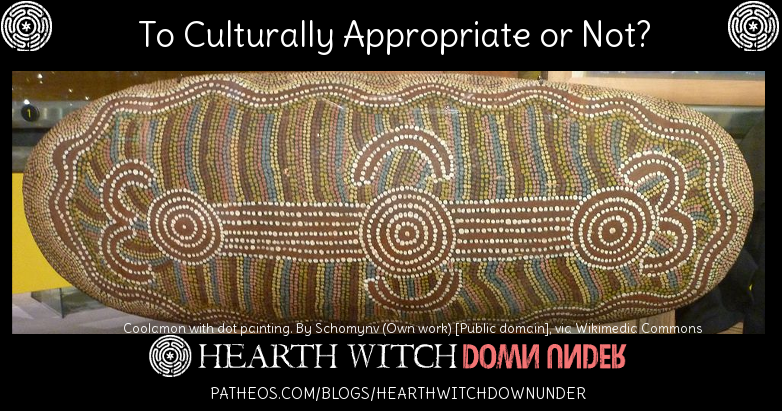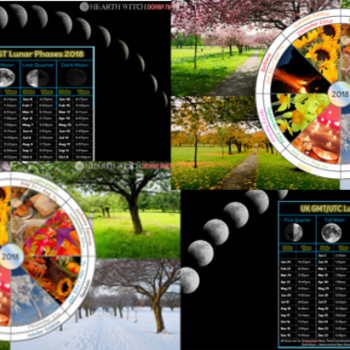As with so many things, I find myself falling into a centrist position when it comes to the issue of cultural appropriation. At first, like so many people, I got caught in the web of the social justice movement of cultural appropriation and didn’t really give it much thought – I just went with the flow. If people said it was wrong, then obviously it must be wrong.
But as I do with everything, I woke up and decided to actually listen to my deep dark horrible disagreeing thoughts. I decided to listen to myself, analyse why my inner voice would call bullshit on various statements of horrible cultural stealing. I looked deeper, I thought deeper and I questioned everything.
And so I now sit in the middle, that place I often end up sitting. There are many things I see and agree, no that is just wrong to do – that is not yours for the taking, not yours to use and abuse. People climbing Uluru is a good example of this. But other times I see people crying “appropriation” and all I can do is shake my head and roll my eyes. Sometimes, it goes too far, and when it goes too far it not only makes people less inclined to care about the real cultural misappropriations but it also leads to things becoming lost to the aether.

Appropriation vs Misappropriation
Cultural Appropriation is the taking of a cultures undefined “thing” and using it for yourself. The taking of the “thing” is not in and of itself a bad action. It’s what you do with the “thing” or how you take the “thing” that matters. Which leads me to the term I prefer.
Cultural Misappropriation is like the above appropriation, but it specifically refers to how the “thing” is treated. And that is badly. Cultural misappropriation is when you take a “thing” and abuse it, use it wrong, use it in a way that it harms the original owners, use it in a way that disrespects the original owners, or in some other bad way.
The best kind of cultural appropriation will be to take the thing, understand the way the thing is meant to be used, why, what meaning it has attached to it – and then using it correctly and with respect. An example could be creating your own dreamcatcher at home, learning about dreamcatchers, what they mean, how they are used etc.
Cultural misappropriation would then be mass making cheap dreamcatchers, not understanding them beyond the surface basics, selling them for cheap and undercutting the original owners who might be trying to sell the real deal.
Appropriation would be taking karma and placing it into an eclectic religious belief system, leaving it mostly exactly as it was but attaching actions and behaviour from a different religion to the karmic debt system. Misappropriation would be what we currently have in the western world regarding karma, ie. “Karma is a bitch” and “Karma will get them” and “What goes around comes around”.
I don’t expect anyone to use these terms in the same way I do, I am merely explaining how I classify this sort thing. But also to explain why I don’t see all appropriation as bad.
Avoiding Appropriation can Lead to Misappropriation
An interesting thing I realised recently is that sometimes in an effort to avoid being the bad appropriator, you can accidentally end up being a bad misappropriator. This may seem like an odd idea, but bear with me.
Last year I did a blog series called 180 Degrees of Separation, and in that I discussed mostly the differences between the southern and northern hemisphere in Paganism and Witchcraft. They were also about how different one region can be from another, even within the same country or state. But in that series (and in other posts) I discussed the seasons and how they don’t really match most places in the world, and Australian Paganism really makes this obvious. I spoke about looking at the traditional Aboriginal seasons of my area for help in learning about the real seasons of my region – but, I made sure to add, I wouldn’t do anything like steal the names of their seasons or anything. It was just for learning about my area. I am not an appropriator!
In doing this I would be looking at another cultures system, beliefs and more and partially incorporating that into my practice and system. Simultaneously I would be completely omitting that culture from my system, by omitting the names and words they used. Essentially I would be taking from them, but not even acknowledging that they are who I am taking from. Not the most harmful type of misappropriation, but still not a good thing to do.
Sometimes We Need to Appropriate
Now you could say, well then don’t take any of their information and you won’t be appropriating or misappropriating. Free and clear you will be. But I can’t really agree to that either. It’s a thought, sure, but it’s not a good one because it ignores the very obvious truth staring me in the face. I live on this land, my land their land. I can’t take back what has physically been appropriated, I can’t take back the fact the local Aboriginal tribe has all died out because of white people. I live here, benefit from the land we stole from them. Who am I to deny their culture to this land?
Because that is what I would be doing by ignoring their culture while I live here – I would be denying their culture to this land. They don’t live here, they give nothing any more. But I am here and my religion is uniquely suited to being a placeholder for them, at least in some small way.
Is it not my responsibility to learn everything I can and give it back to the land it came from? Is it not my job to learn about the local seasons and honour them, if not in their way, at least in a relevant way? Should I not remember their language and use it, when using their “things”? Am I not beholden to the land around me, and the things on this land? Is it not my place to honour the land, as it was and as it is now?
To not appropriate is to disrespect this land and the people who once held it sacred. I should learn the local seasonal information and use the correct names and terms. I should learn the names and words for the local land features (mountains, lakes, streams etc). I should learn, where I can, about the spirits and entities attached to this land and its features, and not just from my religion but theirs too. I should learn where we slaughtered them by the hundreds, and how I might best honour them and when – in their way and mine.
To Culturally Appropriate or Not?
I descend from several different Aboriginal tribes, but I was raised as a white Aussie, with white Aussie agnostic, new age, bogan culture. I wasn’t raised Aboriginal, I have no right to claim the culture unless I immerse myself in it properly.
But I cannot sit here and pretend I honour my land, honour the dead, by ignoring and bypassing the culture that came before. I cannot sit here and say it’s okay that four seasons from a foreign land are forced upon this land, like it belongs. And to call our local landforms by their Aboriginal names (Aussie places often have Aboriginal words for names), without understanding those names, where they came from, what they mean and why they are/were used – how is that in any way okay?
And I have to wonder what is more wrong: appropriating some things from the indigenous culture in order to preserve some of the things they believed and practiced, or allowing the culture of the conquerors to dominate and take over the land, while erasing the culture of the people they/we slaughtered.
So I began this journey thinking that it was wrong to use anything of theirs, it was wrong to appropriate from Aboriginal culture. But now, I have to say different – it is wrong to not appropriate from them. And so, I will do the right thing, no matter how much everyone else tries to tell me it is wrong.
I will culturally appropriate.
















